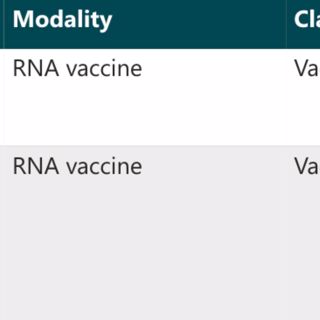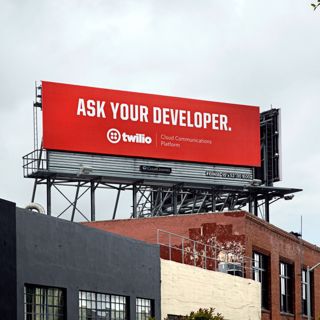
The Machine That Made the Vaccine: Company, Platform, Innovation
In this special episode of Bio Eats World -- which aired right after the FDA authorized Moderna's mRNA vaccine for emergency use -- Moderna CEO Stephane Bancel tells the story of not just the vaccine’s development, but the machine that made the vaccine: the platform, the technology, and the moves behind the vaccine’s development.How does this new technology that uses mRNA work; why is this such a fundamental shift in the world of drug development; and where will this technology go next? https://a16z.com/2020/12/18/moderna-covid-vaccine-mrna-technology/ Stay Updated:Find a16z on XFind a16z on LinkedInListen to the a16z Podcast on SpotifyListen to the a16z Podcast on Apple PodcastsFollow our host: https://twitter.com/eriktorenberg Please note that the content here is for informational purposes only; should NOT be taken as legal, business, tax, or investment advice or be used to evaluate any investment or security; and is not directed at any investors or potential investors in any a16z fund. a16z and its affiliates may maintain investments in the companies discussed. For more details please see a16z.com/disclosures. Hosted by Simplecast, an AdsWizz company. See pcm.adswizz.com for information about our collection and use of personal data for advertising.
21 Joulu 202040min

The PPP Omnibus: Eminent Domain, Fraud, and Fintech
This episode features two relevant but previously recorded episodes, discussing the relevance of the Paycheck Protection Program (or PPP) from the Small Business Administration and the role of government stimulus/ pandemic relief for the economy as well as where tech comes in. It combines 2 separate episodes, beginning with one recorded much earlier this year (on our show 16 Minutes), which outlines a useful analogy of "eminent domain" for government-mandated shutdowns of certain businesses and technology considerations; and then is followed by an episode (recorded later this year) on preventing fraud and the role of fintech. Both episodes feature in common a16z general partner in fintech Alex Rampell, who also wrote about how Small Businesses Depend on the Stimulus Package, and The Stimulus Will Depend on Fintech, which you can find at: a16z.com/pandemicstimulus Stay Updated:Find a16z on XFind a16z on LinkedInListen to the a16z Podcast on SpotifyListen to the a16z Podcast on Apple PodcastsFollow our host: https://twitter.com/eriktorenberg Please note that the content here is for informational purposes only; should NOT be taken as legal, business, tax, or investment advice or be used to evaluate any investment or security; and is not directed at any investors or potential investors in any a16z fund. a16z and its affiliates may maintain investments in the companies discussed. For more details please see a16z.com/disclosures. Hosted by Simplecast, an AdsWizz company. See pcm.adswizz.com for information about our collection and use of personal data for advertising.
14 Joulu 202059min

The Holy Grail of Social + Fintech
The intersection of social and finance—as well as shifting attitudes around what we share about money online—have given way to an ambitious new wave of financial products.While revealing one’s financial information was once considered taboo, now people are more apt than ever to openly discuss money online, particularly Gen Z and millennials. That’s evident on both ends of the spectrum, whether people are bemoaning their crushing levels of student debt on Twitter and Instagram or bragging about their latest stock trades on WallStreetBets. The repercussions extend far beyond social media, fueling a wave of new social-fintech products like Public, Commonstock, and Doji, among others.In this conversation between fintech partner Anish Acharya, formerly a product manager at Credit Karma, consumer partner D’Arcy Coolican (who himself is a former founder in this space), and host Lauren Murrow, we discuss why the “holy grail” of social plus finance is both so challenging and, potentially, so rewarding. This episode was originally released last year and has been resurfaced as part of Social Strikes Back, a new series exploring the next generation of social networks and how they’re shaping the future of consumer tech. See more at a16z.com/social-strikes-back. Stay Updated:Find a16z on XFind a16z on LinkedInListen to the a16z Podcast on SpotifyListen to the a16z Podcast on Apple PodcastsFollow our host: https://twitter.com/eriktorenberg Please note that the content here is for informational purposes only; should NOT be taken as legal, business, tax, or investment advice or be used to evaluate any investment or security; and is not directed at any investors or potential investors in any a16z fund. a16z and its affiliates may maintain investments in the companies discussed. For more details please see a16z.com/disclosures. Hosted by Simplecast, an AdsWizz company. See pcm.adswizz.com for information about our collection and use of personal data for advertising.
7 Joulu 202024min

On Fear and Leadership: Product to Sales CTOs & CEOs
There's a few ontologies for describing the phases leaders -- and their startups -- go through, whether it's product-sales-etc. or pioneer to settler. In any case, as companies evolve, so must the leaders -- but can the same person transition across all these phases? When and when not; what are the qualities, criteria, and tradeoffs to be made?In this episode of the a16z Podcast, originally recorded as an internal hallway-style chat (pre pandemic!) a16z general partner Martin Casado, who co-founded but decided to remain CTO of Nicira -- and previously shared his own journey, lessons learned, and advice for founders about bringing in an external CEO and the question of "to CTO or not to CTO" -- and Armon Dadgar, co-founder (with Mitchell Hashimoto) and CTO of HashiCorp, chat with Sonal Chokshi about both managing their past psychology through these common questions and decisions. They also share their strategies on managing the specific tactics behind it all: Everything from the "dating" process of finding an external CEO to figuring out swim lanes; handling debates and decisions; who presents, who sells. And while the conversation is a brief glimpse into their longer personal journeys, there's lessons in it for startups and leaders of all kinds on the art of hiring and sales, managing credit and conflict, and more... Stay Updated:Find a16z on XFind a16z on LinkedInListen to the a16z Podcast on SpotifyListen to the a16z Podcast on Apple PodcastsFollow our host: https://twitter.com/eriktorenberg Please note that the content here is for informational purposes only; should NOT be taken as legal, business, tax, or investment advice or be used to evaluate any investment or security; and is not directed at any investors or potential investors in any a16z fund. a16z and its affiliates may maintain investments in the companies discussed. For more details please see a16z.com/disclosures. Hosted by Simplecast, an AdsWizz company. See pcm.adswizz.com for information about our collection and use of personal data for advertising.
4 Joulu 202042min

On Food As Medicine (A Holiday Snack)
What happens if we treat food as a medicine in the healthcare system: How, where, and who (pays)? What role can technology play in increasing access, distribution, and more? General partner Julie Yoo talks with the founder and former medical director of Geisinger Fresh Food Farmacy, Dr. Andrea Feinberg, and with the co-founder of food delivery start up Plated in this "holiday" cross-promo of our show Bio Eats World. Stay Updated:Find a16z on XFind a16z on LinkedInListen to the a16z Podcast on SpotifyListen to the a16z Podcast on Apple PodcastsFollow our host: https://twitter.com/eriktorenberg Please note that the content here is for informational purposes only; should NOT be taken as legal, business, tax, or investment advice or be used to evaluate any investment or security; and is not directed at any investors or potential investors in any a16z fund. a16z and its affiliates may maintain investments in the companies discussed. For more details please see a16z.com/disclosures. Hosted by Simplecast, an AdsWizz company. See pcm.adswizz.com for information about our collection and use of personal data for advertising.
26 Marras 202020min

Crypto Creators: On Art Galleries to 'Tokenized' Collectibles
This episode features Q&As with two artists who are exploring crypto-powered auction sites and marketplaces – this is part of our ongoing series on the creator economy. The big picture is that emerging "tokenization" models, especially non-fungible tokens, or NFTs, are creating new ways for collectors and investors to buy, sell, and trade digital art. More broadly, these innovations open the door to the tokenization of any products or collectibles that can be captured and owned digitally. Marketplaces powered by NFTs open up new revenue streams for creators, because anytime digital work is resold or their tokens traded on these platforms, no matter how many times, the creator gets a percentage of those secondary sales. It's all transparent and governed by code on the blockchain, and it’s a big shift in creator economies. Our first guest is one of the biggest names in crypto art, and one of the most mysterious. Murat Pak is the artist and industrial designer who created the AI-powered image sharing site Archillect. Pak has made it a policy to separate their personal identity from their online work, and prefers to keep their quote-unquote real identity hidden, so we conducted this interview by email and converted Pak’s answers to audio using text-to-speech software. As Pak has expressed in other interviews, it's really the work that matters. And we do know a lot about the work, Pak has sold more than 60 pieces of digital art this year on the auction site SuperRare, for more than $350,000. And that’s just one of the several platforms on which Pak’s work is sold. In this Q&A, Pak talks with a16z's Zoran Basich about NFTs. These "non-fungible tokens" are unique assets that are not interchangeable. Dollar bills are fungible — each dollar bill is worth exactly the same as every other one. But works of art, for example, or any collectible, can be non-fungible — their value varies based on the market for that particular asset. With crypto, these assets carry digital ownership rights that can be easily exchanged. We start by discussing the whole concept of digital art, and why anyone would pay for something that (seemingly) can be easily copied. Our second interview is with Signe Pierce, a visual, digital, and performance artist whose work has appeared in major galleries in Paris, Los Angeles, and New York. She’s currently featuring her artwork on the creator marketplace Foundation. On that site, in addition to auction-style NFT markets, the price of tokens associated with individual works of art is something like you’d see on a stock market – the pricing is real-time, and dynamic and fluctuates according to demand by buyers, who might be investors, collectors, or fans. Signe discusses why she went from working exclusively with galleries to trying crypto marketplaces, how this move affects her work and her business, and how crypto could change the way she engages with her fans. She also offers advice for creators interested in getting into the world of crypto. She starts off by talking about how social media popularity several years ago opened her eyes to the idea of new monetization models for creators. Stay Updated: Find a16z on X Find a16z on LinkedIn Listen to the a16z Podcast on Spotify Listen to the a16z Podcast on Apple Podcasts Follow our host: https://twitter.com/eriktorenberg Please note that the content here is for informational purposes only; should NOT be taken as legal, business, tax, or investment advice or be used to evaluate any investment or security; and is not directed at any investors or potential investors in any a16z fund. a16z and its affiliates may maintain investments in the companies discussed. For more details please see a16z.com/disclosures. Hosted by Simplecast, an AdsWizz company. See https://pcm.adswizz.com for information about our collection and use of personal data for advertising.
22 Marras 202020min

What to Know about Those Vaccines
A vaccine for COVID seems to be (almost) here… or is it? What’s hype/ what’s real beyond the headlines (and beyond the press release), when it comes to the announcement last week from Pfizer and BioNTech that their vaccine candidate was found to be more than 90% effective in preventing COVID-19 -- and relatedly, the most recent news around Moderna's vaccine candidate? Of course, this was just the first interim efficacy analysis — so how close or far are we? What’s the significance of the readout and case numbers? How do we put all this in context of all the other (458!) programs in development? And how much should/ shouldn’t we read into the news, given the buzzy excitement and penchant for evaluating "science via press release"? a16z bio general partners Vineeta Agarwala and Jorge Conde recently broke it all down in conversation with Sonal Chokshi on our show 16 Minutes: the math, the science, and the practical considerations — from “vaccine efficacy” vs. efficiency, from cold chains to distribution, from patients to the system… as well as why mRNA matters in the present future of vaccines. Stay Updated:Find a16z on XFind a16z on LinkedInListen to the a16z Podcast on SpotifyListen to the a16z Podcast on Apple PodcastsFollow our host: https://twitter.com/eriktorenberg Please note that the content here is for informational purposes only; should NOT be taken as legal, business, tax, or investment advice or be used to evaluate any investment or security; and is not directed at any investors or potential investors in any a16z fund. a16z and its affiliates may maintain investments in the companies discussed. For more details please see a16z.com/disclosures. Hosted by Simplecast, an AdsWizz company. See pcm.adswizz.com for information about our collection and use of personal data for advertising.
20 Marras 202021min

The Social Serendipity of Cloud Gaming
True cloud-native games—those exclusive to and solely playable within the cloud—are poised to revolutionize gameplay and unlock new avenues of hyper-personalized storytelling and socializing. It's a vision that, though steadily advancing, is still in its early stages. Just one year ago this week, Google launched its cloud gaming service, Stadia, which shares the space with competitors including Microsoft's xCloud, Playstation Now, and Nvidia’s GeForce. In this episode, Jade Raymond, VP of Stadia Games and Entertainment, Jonathan Lai, formerly of Riot Games and Tencent, and host Lauren Murrow talk about the challenges in building cloud-native games, their potential to upend prevailing business models and pricing, and, most importantly, the spontaneous, social, super-shareable experiences that true cloud streaming will reveal. Through the rise of user-generated content, AI, and the cloud, they believe we're inching ever closer to the Metaverse.This episode is part of Social Strikes Back, a new series exploring the next generation of social networks and how they’re shaping the future of consumer tech. See more at a16z.com/social-strikes-back. Stay Updated:Find a16z on XFind a16z on LinkedInListen to the a16z Podcast on SpotifyListen to the a16z Podcast on Apple PodcastsFollow our host: https://twitter.com/eriktorenberg Please note that the content here is for informational purposes only; should NOT be taken as legal, business, tax, or investment advice or be used to evaluate any investment or security; and is not directed at any investors or potential investors in any a16z fund. a16z and its affiliates may maintain investments in the companies discussed. For more details please see a16z.com/disclosures. Hosted by Simplecast, an AdsWizz company. See pcm.adswizz.com for information about our collection and use of personal data for advertising.
16 Marras 202038min






















